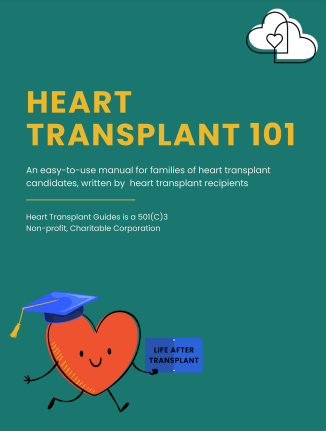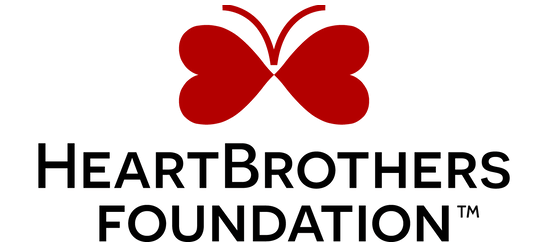 A heart transplant is a complex medical procedure where a diseased or failing heart is replaced with a healthy heart from a donor. It is usually recommended for patients with severe heart conditions that cannot be treated effectively by other means.
A heart transplant is a complex medical procedure where a diseased or failing heart is replaced with a healthy heart from a donor. It is usually recommended for patients with severe heart conditions that cannot be treated effectively by other means.
Each patient’s journey is different. The following information provides a general overview of what to expect, before, during, and after transplant.
Before the Transplant:
- Evaluation: To determine if a heart transplant is the best option, doctors will conduct a thorough evaluation of your medical history, overall health, and the severity of your heart condition. They will also assess your ability to cope with the transplant process and the necessary medications afterward.
- Waiting List: If you are considered a suitable candidate for a heart transplant, you will be placed on a waiting list for a compatible donor heart. The waiting time can vary and may require patience and understanding.
- Preparing for Surgery: While waiting for a donor heart, you’ll need to maintain your health and follow your doctor’s instructions, which may include lifestyle changes and adherence to prescribed medications.
During the Transplant:
- The Surgery: Once a suitable donor heart becomes available, you will be prepared for surgery. The transplant procedure typically takes several hours, during which you’ll be under anesthesia, and your failing heart will be replaced with a healthy donor heart.
- Recovery: After the surgery, you’ll be closely monitored in the hospital’s intensive care unit (ICU) to ensure your body accepts the new heart and that there are no complications.
After the Transplant:
- Immunosuppressant Medications: To prevent your body from rejecting the new heart, you will need to take lifelong medications called immunosuppressants. These drugs lower your immune system’s activity, helping your body accept the donor heart.
- Follow-up Care: After leaving the hospital, you’ll have regular check-ups with your transplant team. These visits are essential to monitor your heart’s health, adjust medications, and address any concerns.
- Lifestyle Changes: Following a heart transplant, you will need to make significant lifestyle changes to maintain your health. This may include a balanced diet, regular exercise, avoiding smoking and excessive alcohol, and managing stress.
- Infections: Since immunosuppressants lower your immune system, you’ll need to be vigilant about protecting yourself from infections. Your transplant team will guide you on how to reduce the risk of infections.
- Emotional and Psychological Support: The heart transplant journey can be emotionally challenging. Seeking support from friends, family, or support groups can be beneficial to help cope with these challenges.
- Monitoring and Long-Term Outlook: Regular monitoring and adherence to your medical team’s advice are crucial for the long-term success of your heart transplant. With proper care, many heart transplant recipients can lead active and fulfilling lives.
It’s important to note that a heart transplant is a major surgery with potential risks and complications. However, for many people with severe heart conditions, it can offer a chance at a healthier and longer life. The decision to undergo a heart transplant should be made in close consultation with your medical team and loved ones, considering all the benefits and potential challenges involved.
RESOURCES
Below are resources to assist in your heart transplant journey.
Heart Transplant “Guides”
Heart Transplant Guides has a mission to help make the journey to transplant and life after transplant as smooth as possible.
- To connect with a Heart Transplant Guide (i.e. someone who has undergone a heart transplant and acts as a “guide” through your transplant process), please email info@hearttransplantguides.org.
- Please click here or on the “Heart Transplant 101” image below to download a heart transplant manual, produced by HeartTransplantGuides.org.

Heart Brothers: https://www.heartbrothers.org/

This non-profit organization is dedicated to helping Heart Failure patients and their families navigate the complex journey of Heart Failure, mechanical circulatory support, and heart transplantation. It is our sole mission to bring resources together to help Heart Failure patients and their loved ones survive life with Heart Failure and all its challenges.
Webinars
The Heart Transplant Journey – What You Should Know, June 2022 (Click HERE to view the webinar slide deck.)
DCM and Heart Transplant: 3 Patient Stories, December 2021
Greg Ruf’s Heart Transplant Videos
Greg Ruf, Executive Director of the DCM Foundation, received the life-saving gift of a heart transplant on July 15, 2021. His video series captures many aspects of his transplant journey.
- Greg’s Post-Transplant Summary – Prepare for Transplant: Physically, Spiritually, and Emotionally.
- 4 Weeks Post-Op and Doing Well
- The Emotional Aspects of DCM and Facing a Heart Transplant
- In the Hospital Awaiting Transplant
- CHF and Discussing Heart Transplant
Blog Articles
- 14-year-old DCM & Heart Transplant Patient Promotes Organ Donation, September 2022 https://dcmfoundation.org/14-year-old-dcm-heart-transplant-patient-promotes-organ-donation/
- Shane’s Life-Saving Heart Transplant, June 2022 https://dcmfoundation.org/shanes-life-saving-heart-transplant/
- Woman Vows to “Live Her Best Life” after DCM and Heart Transplant, January 2022 https://dcmfoundation.org/living-her-best-life-after-dcm-heart-transplant/
- From Athlete to DCM Diagnosis and Heart Transplant at Age 30 – a story of HOPE, May 2021 https://dcmfoundation.org/from-athlete-to-dcm-diagnosis-and-heart-transplant-at-age-30-a-story-of-hope/
- Baby Alaynah’s DCM Story – Beating the Odds, October 2022 https://dcmfoundation.org/baby-alaynahs-dcm-story-beating-the-odds/
Please email info@dcmfoundation.org if you have additional questions or would like to connect with a heart transplant support group.










